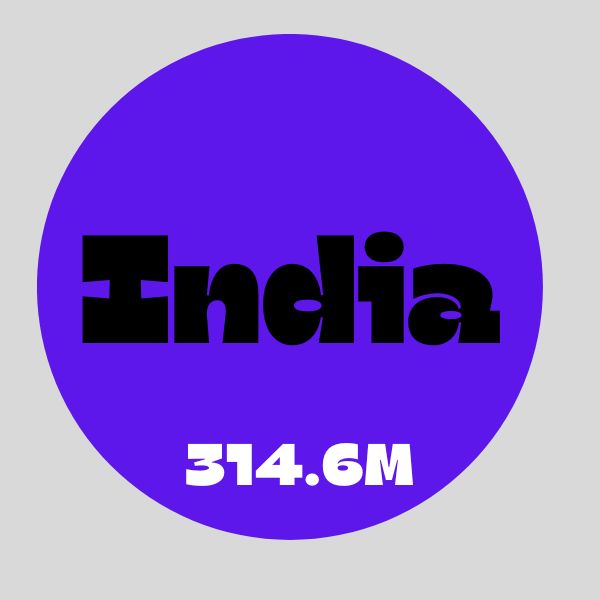Facebook, a multinational social media conglomerate corporation, originated in Cambridge, Massachusetts, USA, in 2004. The brainchild of Mark Zuckerberg and his Harvard University peers, including Eduardo Saverin, Andrew McCollum, Dustin Moskovitz, and Chris Hughes, Facebook has since burgeoned into the world's premier social network. Boasting approximately 2.9 billion monthly active users, Facebook commands an unrivalled position in the global digital landscape.

India with 314.6M users has the most number of Facebook users in the world.
ALSO READ| WhatsApp Email Verification: Meta are Planning to Introduce Email Verification Feature
10 Countries With Most Facebook Users
India leads the world in terms of the highest number of Facebook users within a single country. This remarkable statistic is largely attributed to India's substantial population, which ranks second globally, with approximately 1.4 billion people, trailing only behind China. The sheer size of India's population contributes significantly to the extensive user base that Facebook has amassed within the country. Here is the complete list:
| Country | Users | User % |
| India | 314.6M | 21.82% |
| United States | 175M | 51.20% |
| Indonesia | 119.9M | 42.85% |
| Brazil | 109.1M | 50.13% |
| Mexico | 83.5M | 64.73% |
| Philippines | 80.3M | 67.42% |
| Vietnam | 66.2M | 66.53% |
| Thailand | 48.1M | 66.91% |
| Bangladesh | 43.25M | 24.76% |
| Egypt | 42M | 36.69% |
Should India's Facebook users unite, they would constitute the fifth-largest nation on Earth by population. Following closely, the United States boasts the second-largest user base, totalling approximately 240 million individuals. With a population of roughly 334 million, this signifies that over 71% of the U.S. populace—nearly three-quarters—are active on Facebook. Given Facebook's policy stipulating a minimum age of 13 for account creation, the actual membership rate is likely higher still.
Censorship Around World
Facebook's global expansion has been swift, permeating nearly every corner of the world with its user base. The platform's accessibility facilitates seamless connectivity, enabling individuals to forge and maintain connections across vast distances with greater ease than ever before. Particularly in democratic societies, Facebook, alongside other social media platforms, catalyses political campaigns, news dissemination, movement coordination, and protest organisations.
Yet, Facebook's laissez-faire approach to content moderation has drawn reproach from various national governments. In the United States, criticism has been levelled against Facebook for its role in propagating misinformation, notably during pivotal political campaigns and the COVID-19 crisis. In response, some nations have resorted to content bans to combat misinformation, as exemplified by Austria's legislation against Holocaust denial, resulting in the prohibition of such content on the platform. Moreover, authoritarian regimes like China, known for stringent internet censorship, perceive Facebook as a conduit for the dissemination of information that challenges their control. Similarly, nations governed by rigid religious doctrines regard Facebook as a platform conducive to blasphemy. Consequently, numerous countries have imposed censorship measures or restricted access to certain sections of Facebook, while a handful have opted for complete bans.
Comments
All Comments (0)
Join the conversation